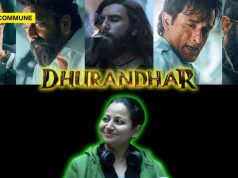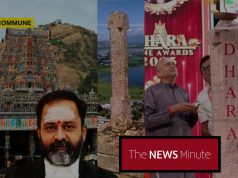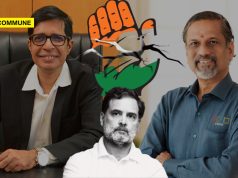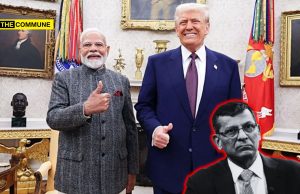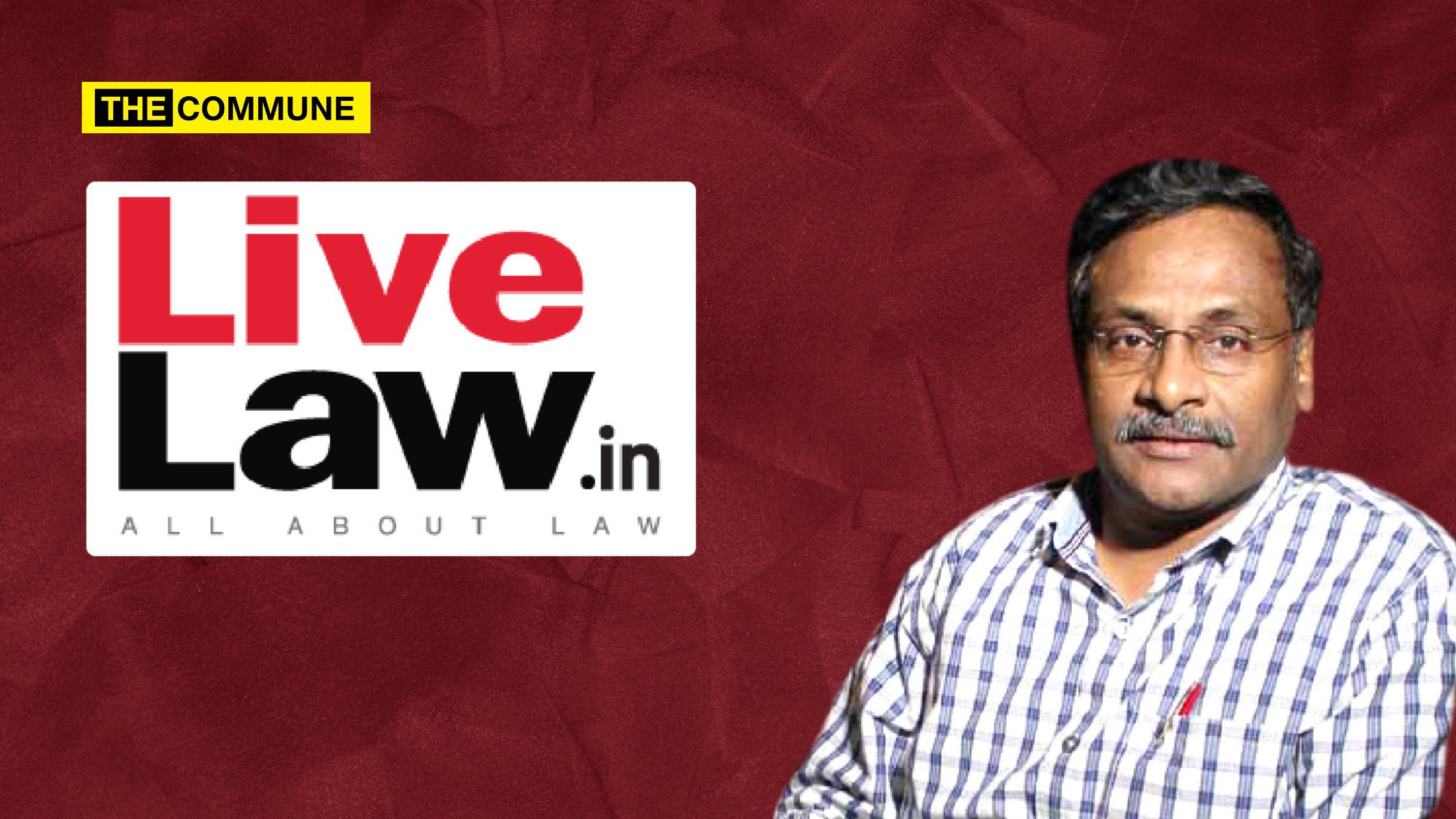
On Saturday, the Managing Editor of news portal ‘LiveLaw’ wrote a column in the portal claiming that questions were raised regarding Supreme Court’s Saturday hearing in Maoist Saibaba’s case. The author’s source for the claim is an alleged “buzz” regarding the hearing in “Lawyers groups”. “Lawyers groups are abuzz with discussions regarding the extraordinary special sitting held by the Supreme Court…” begins the column.
Fake narrative peddlers are known to quote anonymous ‘auto drivers’ and ‘uber drivers’ to put out fake, non-existent opinions in the public domain. LiveLaw has come out with an original technique – buzz in lawyers groups – seemingly referring to WhatsApp group chats, to project a non-existent ‘buzz’ among lawyers.
I spoke to many prominent lawyers from different parts of the country, all of whom said that there is nothing extraordinary about the sitting of the Supreme Court held on Saturday and that the alleged buzz among lawyers against the sitting is a figment of LiveLaw Managing Editor’s imagination, published to build a fake narrative.
Lawyers say that given what Saibaba was convicted for by the trial court (based on evidence), there is nothing unusual in the urgent hearing held on Saturday. They say that the hearing shows the strength and agility of the judiciary and its ability to adequately meet the situation that was created by the Bombay High Court by choosing to pronounce its verdict on a Friday. The Bombay High Court had reserved the case for judgment on September 29 and pronounced its verdict on Friday, ordering the release of Saibaba from custody “forthwith”.
The LiveLaw Editor also refers to the “tearing hurry” with which the petition was filed and the listing of the case before a Bench of two judges, whose combination is not among the regular benches at present. Firstly, complete credit goes to the State of Maharashtra and its legal team for preparing, filing and moving the petition within hours of the Bombay High Court ordering Saibaba’s release “forthwith”. Secondly, there is nothing unusual about constituting a bench of two judges who are otherwise not sitting on the same bench, since one of the considerations while constituting a bench for a holiday, at the eleventh hour, is the availability of judges.
The LiveLaw Editor then says that the special sitting was conducted to take away the personal liberty granted by the High Court, while earlier special sittings were held in the cases of Arnab Goswami and Vinod Dua since personal liberty was at stake. Maoist Saibaba was convicted by the trial court and sentenced to life after a full-fledged trial, based on evidence. The Sessions Judge after appreciating the evidence, said in his judgment that imprisonment for life is not sufficient punishment for Saibaba and that the hands of the Court are tied in view of the fact that imprisonment for life is the maximum punishment that the Court has power to grant in the case.
It is the Supreme Court’s duty to protect not only the “personal liberties” of the accused and the convicted, but also the rights of others, including those who are victims of extreme violence perpetrated by the Maoists in many parts of the country. If the Supreme Court finds that the judgment of the Bombay High Court discharging Saibaba and ordering his release “forthwith” is prima facie flawed, it is the court’s duty to ensure that no benefit flows from it to the life convict.
The Bombay High Court while discharging Saibaba on the ground of want of proper sanction, did not appreciate the important aspect of the plea not having been raised before the Sessions Court, as the Supreme Court noted. In fact, during the hearing before the Supreme Court, Saibaba’s lawyer conceded that the appeal filed by the state has sufficient grounds for issuance of notice. He conceded that some legal questions raised in the appeal warrant answers from the court.
Moreover, even while discharging Saibaba for want of proper sanction, the Bombay High Court clarified that the state is at liberty to obtain proper sanction and try the accused. Given the seriousness of the findings of the Sessions Court against Saibaba, it was a fit case for the Supreme Court to interfere at the interim stage. The Supreme Court had to do it on a Saturday because the Bombay High Court pronounced its verdict on Friday, the last working day of the week for Courts. No section of the media cast any aspersion on the judges of the Bombay High Court for pronouncing its verdict for release of the life convict “forthwith” on a Friday, even though he is in prison since his conviction in 2017.
In fact, a division bench of the High Court comprising Justice Rohit Deo, who authored the present verdict, had refused to suspend the sentence of Saibaba in 2019 stating, “..on going through the observations of learned trial Judge, applicant’s involvement along with other co-accused is found to have link and they were acting for alleged naxalite and banned Organization, i.e. CPI (Maoist) and its frontal Organization, i.e. RDF, assisting naxals on the basis of secret codes to facilitate them to reach their goals, the material produced forms a complete chain establishing applicant’s involvement in the present crime along with other accused..” It is not unreasonable for the Supreme Court to suspend the judgment of the Bombay High Court, which has not disturbed any of the findings of the Sessions Court on merit, once the Court is prima facie convinced of legal flaws in the High Court’s judgment.
Regarding what transpired during the mentioning before the bench headed by Justice D. Y. Chandrachud by the Solicitor General on Friday, Justice Chandrachud ought not to have made the oral remark that it cannot stay the acquittal, without seeing the appeal papers. It appears that contrary to what was reported in the media, the Solicitor General did not make an oral plea for the stay of the order but only sought an early listing of the appeal. Justice Chandrachud nevertheless made the remark that it cannot stay the acquittal.
LiveLaw piece cites what happened with respect to the Kerala High Court’s judgment on UAPA to say that appellate courts setting aside trial on the grounds such as lack of sanction is not a rarity. Contrary to what is insinuated in the piece, the bench of Justices MR Shah and Krishna Murari had expressly left the question of law open while allowing the State of Kerala to withdraw its petition challenging High Court’s decision to discharge a Maoist leader for delay in granting sanction under UAPA. Moreover, even the Bombay High Court in its present judgment discharging Saibaba notices the fact that the Supreme Court has left the question of law open and says that it does not agree with the Kerala High Court’s view.
Not surprisingly, a few months back LiveLaw was caught peddling fake news to help the Communist government of Kerala. A complaint was filed before the High Court against LiveLaw for twisting news from the Kerala High Court to help Kerala’s Chief Minister Pinarayi Vijayan and the CPI(M).
In August 2020, Justice Arun Mishra, then a judge of the Supreme Court had said in open court that LiveLaw reporting is “one-sided” and “incorrect”.
Citing alleged “buzz” in “Lawyers groups” to manufacture outrage against a Supreme Court’s decision is a new low for LiveLaw.
Click here to subscribe to The Commune on Telegram and get the best stories of the day delivered to you personally.

